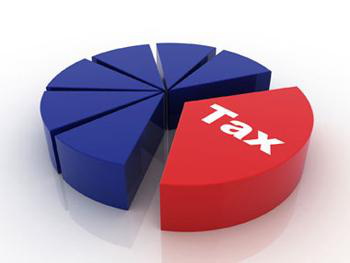Accounting Outsourcing Service in Hong Kong
Introduction on Hong Kong Tax

There are several reasons as to why foreign investors and entrepreneurs choose HK as their preferred jurisdiction for establishing and expanding their business operations. Some of the top factors include:
● Ease of setting up and operating a business in HK
● Proximity to Mainland Chinese market
● Highly attractive tax regime – low personal and corporate tax rates, no capital gains tax, no VAT or sales tax, no withholding tax on dividends and interest or collection of social security benefit
This article provides an overview of the tax system in HK and points the reader to more detailed articles on each specific topic. By aligning its tax policy with growth-oriented economic goals, HK has emerged as one of the preferred locations for most global entrepreneurs and business enterprises.
Current Tax Rates in HK
Tax Rates for Companies
| INCOME | TAX RATE |
| Tax rate for corporations | 16.5% |
| Tax rate on capital gains | 0% |
| Tax rate on shareholder dividends | 0% |
| Tax rate on foreign-sourced income | 0% |
HK Tax: Key Facts
Currency
The HK currency is called HK Dollar (HKD) – the 9th most traded country in the world. HKD is closely pegged to the US dollar at approximately 1 USD = 7.8 HKD.
Foreign Exchange Control
There are no foreign exchange controls in HK Tax Jurisdiction
Taxes in HK are levied on the “territorial principle”. In other words, taxes are only levied on income “derived from or arising in” HK and not on income sourced outside HK. In simple terms, this means that a person who carries on a business in HK, but derives profits from another place is not required to pay tax in HK on those profits. No tax is levied on profits arising abroad, even if they are remitted to HK. The questions of whether a business is carried on in HK and whether profits are derived from HK are largely questions of fact. However some guidance on the principles applied can be found in cases which have been considered by the courts in HK and in other common law jurisdictions. 
Single-Tier Tax System
HK follows a single-tier tax system i.e. there is no dividend tax.
Capital Gains Tax
There is no capital gains tax in HK Capital loss expenses are correspondingly not allowed as deductions.
Dividend Tax
Dividend income, whether from HK or overseas, is not taxable. Dividends paid to either a resident or non-resident of HK are not subject to any withholding tax.
Corporate Tax
HK has an attractive corporate tax regime highlighted by low tax rates. The corporate tax rate is a flat 16.5% on assessable profits. Tax incentives are available for specific industries.
Personal Tax
Individuals are taxed at progressive rates on their net chargeable income (i.e. assessable income after deductions and allowances) which starting at 2% and is capped at 17%; or 15% of net income (i.e. income after deductions only), whichever is lower.
Royalties and fees paid to non-resident entertainers or sportsmen for their performances in HK are subject to withholding tax on their assessable profits. There are no withholding taxes levied on dividends and interest.
Also known as Goods and Services Tax (GST tax) in some countries, there is no VAT or Sales tax imposed in HK.
Double Tax Treaties
HK has established a DTA network (37 treaties) that minimizes exposure of HK residents and residents of the DTA partner to double taxation.
Since 1st January 2005, HK has adapted a Financial Reporting Standards (FRS) framework that has been modeled on International Financial Reporting Standards (IFRS), issued by the International Accounting Standards Board (IASB).
Tax Year
The tax year in HK is 1 April – 31 March. Profits earned during an accounting year ending within the tax year will be deemed to be the profits for that tax year.
Property Tax
Property tax is charged on the owners of land and/or buildings in HK and is computed at the standard rate of 15% on the net assessable value of the property (i.e. property’s rental income).
Estate Duty
Also known as death tax or inheritance tax in some countries, estate duty has been abolished since February 10, 2006. 
Stamp Duty
Stamp duty is chargeable on certain documents (relating to stock & shares and immovable property) specified in the First Schedule to the Stamp Duty Ordinance, which imposes fixed duty on some documents on others. Fixed duties vary from HKD 3.00 to HKD 100 whereas ad valorem duty range from 0.1% to 4.25%
Customs and Excise Duty
HK is a free port. There is no tariff on general imports. However, there is duty on liquors, tobacco, hydrocarbon oil and methyl alcohol. For tobacco, hydrocarbon oil and methyl alcohol, duties are charged at specific rates per unit quantity. For liquors, duty is assessed at different percentages of their values on the basis of three different categories defined broadly according to alcoholic strength. There is no tax or excise duty on exports from HK. 
Hotel Accommodation Tax (HAT)
This tax is imposed on the proprietors who provide hotel and guest house accommodation. Effective from 1 July 2008, the Government waived the charge of HAT. The rate of tax is reduced to 0% (the tax rate was at 3% for the period up to 30 June 2008) on all accommodation charges paid by the guests.
Brief History of Tax Evolution in HK
The Inland Revenue Ordinance (IRO) was first enacted in 1947 to impose income taxes in HK. This was based on the legislative package developed by the UK for its colonies. As a result the IRO bears resemblance to the tax legislation in UK, Australia, South Africa and other Commonwealth countries. When the tax system was first introduced in the 1940s, it was intended to be a temporary measure – one that was to be replaced within a year or so, with higher rates of tax.
The period from 1945 to1970 saw no tax reform, despite two review committees that were constituted in 1954 and 1967. During the 1970s HK was fast growing and emerging as a modern city-state and a significant international trading and financial center. As a result, the need for structural reforms in the tax system was greatly required in order to increase public spending and rates of tax. Hence, the third review committee was formed. However, the colonial government did not adopt the recommendations proposed. As a result, the tax system established in the 1940s remained largely unchanged.
In 1997, the Government issued a consultative document on the profits tax system which invited submissions on how to increase the competitiveness of HK’s tax and business environment. As a result of this initiative, a number of concessions were introduced in 1998. A subsequent review committee was set up in 2002, which suggested the introduction of a Goods and Services Tax (GST). The Government seriously considered introducing GST but dropped the idea in Dec 2006 due to wide-spread public opposition.
If you have any questions about your China business, please feel free to contact us for free.
Contact us in Shanghai, Beijing, Shenzhen or HK for more details:
Jilian Consultants
Telephone:
+(86)21- 6071 0208(Shanghai)
+(86)0755-2394 1595(Shenzhen)
+91 124 436 1515(India)
Email:info@ijilian.cn
Address:
Rm2008, O.T.C Building, No.912,Rd Gonghexin, Shanghai, China.
Rm6519,block A,Jingjibinhe Times Building,Futian District,Shenzhen.
Centrum Plaza First Floor,Office No.111,Golf Course Road,Gurgaon.
Rm104, Tower 1, Shakti Towers, 766 Anna Salai, Chennai, Tamil Nadu.
Our consulting specialist:
Ms. Vivia Fan(English & Mandarin)
Wechat/Mobile: +(86)135 2424 9506
Email: vivia@ijilian.cn
Ms. Claire Qin(English & Mandarin)
Wechat/Mobile: + (86)189 2372 4682
Email: claire.qin@ijilian.com
Mr. Tony Chen(English & Spanish)
Wechat/Mobile: + (86)185 2105 5967
Email: tony.chen@ijilian.com
Complaints and Suggestions
Wechat/Mobile:+ (86)13122269107
Email:info@ijilian.cn
WhatsApp:+8613122269107
Office Time: Monday to Friday 0900AM-1700PM (GMT+8)





